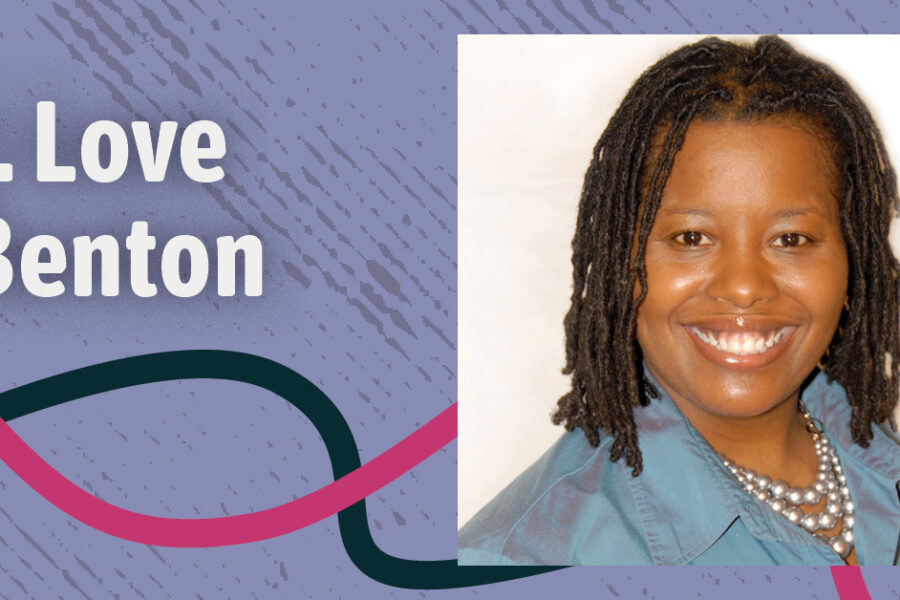Navigating the world of literary publishing can be tricky. This competitive landscape is most accessible to those who have learned by doing, oftentimes having worked from the ground up in some form of internship or apprenticeship. Luckily for students pursuing an undergraduate degree in any of the BA Programs at Antioch Los Angeles, just such an opportunity exists in the form of a for-credit internship at the literary journal Two Hawks Quarterly.
Two Hawks Quarterly (THQ) is an online literary journal committed to publishing fiction, creative nonfiction, poetry, art, and works that transcend genre—all united in being “exquisitely crafted.” Founded by Antioch students in 2007, THQ is an admirable display of literary excellence and also a powerful opportunity for professional development. Students who want to become critical readers and thinkers can pursue internships with THQ, gaining college credit while publishing the journal and building literary editorial skills. The internship is taught as a classroom course and closely overseen by Antioch faculty, including Deborah A. Lott, who oversees the class in the Fall, Winter, and Spring quarters.
By training and preparing students for careers in the publishing industry and beyond, THQ nurtures and empowers the next generation of editors, writers, and other literary professionals. Explains one recent intern, Jeremy Grey, “Overall, the magazine experience was a lot of getting to know my taste, the taste of others, and learning to negotiate the space between.”
An Internship Full of Opportunities for Growth
The internship is offered for 3 or 4 units and has a workload typical of any other course. Meeting times are currently held remotely through Zoom one day a week and can be repeated for multiple quarters. During the quarter of the internship, students gain valuable insight and hands-on experience. Students discuss, critique, and evaluate submissions based on craft and aesthetics. After they accept a piece, they learn developmental editing and copyediting skills. And when a new issue is published, they collaborate to market and promote THQ online and through social media.
In a broader sense, students also develop skills in close reading. Student editors are also trained to navigate Submittable, an industry standard when it comes to submitting to literary journals and magazines and curating an online presence. And they practice the skill of soliciting and cold-contacting new writers. Explains Lott, “A part of what [students] do is look for work in other literary journals and published books where they like an author—and then they reach out to the author and ask the author to submit to us.”
Teamwork at the Journal’s Heart
THQ interns not only receive hands-on experience but the opportunity to be a part of a passionate community. At the heart of THQ is a collaborative team culture consisting of in-depth, editorial discussions between interns, faculty advisors, and editors. They’re uniting to voice their reasoning behind whether a submitted piece would or would not be a good fit for the journal. Says Lott, “We have spirited conversations that can be very wide-ranging all the way beyond the piece. We’re looking at larger cultural issues, societal issues—I wish I could record these amazing conversations we’re having.”
Current student editor, Jeremy Grey, says, “Being a part of the selection process for what’s included in the magazine gives me the opportunity to sharpen my critical senses.” He is particularly taken by the collaborative nature surrounding THQ. “Some of the best conversations I had while working on the magazine were wherein one passionate member of the staff stood up for a piece they believed in,” he says. “Those conversations helped me understand what other readers saw as valuable, while also helping me identify my own likes and dislikes more concretely.”
This collaborative process speaks to the authenticity of the journal–that fancy cover letters and extensive publishing credits have no bearing on pieces chosen for publication. THQ is devoted to strong and provocative words that pulse on the page.
Making a Personal Impact
Caley O’Dwyer, faculty advisor and editor during the summer quarters says, “What’s been meaningful to me personally is the connection to the small community of editors who work on the publication quarter to quarter, our shared interest in finding great literature, and that exciting thing that happens when we find something electric, conspicuously imaginative, but not overdone–something memorable.” After reaching a consensus together, the pieces are voted on and accepted for publication in the journal.
Lott and O’Dwyer, along with faculty member Alistair McCartney, oversee production, and they are each dedicated to maintaining the journal’s artistic integrity. Says Lott, “I think we just published one of our best issues ever and I’m so proud of how the journal and the internship/class have developed over the years.” Lott is proud of the way that THQ’s profile has grown. “We now receive hundreds of submissions from writers all over the world,” she says. “We sometimes serve as a writer’s first publication and sometimes their 200th.”
Working with THQ as an editor also impacts how one reads and writes. The experience challenges participants to become a deeper reader and influences the artistic work some of the editors are producing. This work also has an impact on the faculty advisors. Lott wrote and published a memoir, Don’t Go Crazy Without Me during her time with THQ. She believes the experience has also made her a sharper reader. “I’m more aware of subtextual misogyny and racism and privilege in a piece, and how it’s limiting the worldview of the writer.” She goes on to say, “I’m better able to articulate what’s making something work and not work and see it more quickly. And I’ve also seen the limits of my own biases—what resonates with me, and what doesn’t.”
O’Dwyer is a writer, primarily of poetry, and he also sees how working with THQ influences his own work. He says, “the editorial process at Two Hawk Quarterly has kept me thinking critically about what makes great writing and I’ve noticed I tend to write more in the seasons when I’m involved with Two Hawks. I think all of us who read and edit for the Quarterly, no matter how experienced, learn a great deal about writing.”
All Antioch students—writers, readers, those who are interested in journalism and want to learn how the publishing industry works, or those who simply want to become critical readers and thinkers—would be a great fit for the internship opportunity. Antioch Alum, Caroline Rexrode took the internship for one quarter, and she signed up each quarter after that until she graduated. Though she found she was more drawn to editing than writing, her experience was impactful and remains a highlight of her experience at Antioch. Rexrode says, “Deborah was such an incredible mentor to me during my time at Antioch. The Two Hawks internship helped me realize that being an editor requires an enormous amount of creativity but requires more of a problem-solving creativity than writing. Finding ways to make an author’s unique voice stand out and improve upon a piece of work that I already admired was extremely rewarding. Two Hawks encouraged me to grow as a writer and find my own style.”
THQ is published twice a year. The current issue is Spring 2021. To learn more information about THQ and its internship, and to read its latest issue, visit the journal’s website.



